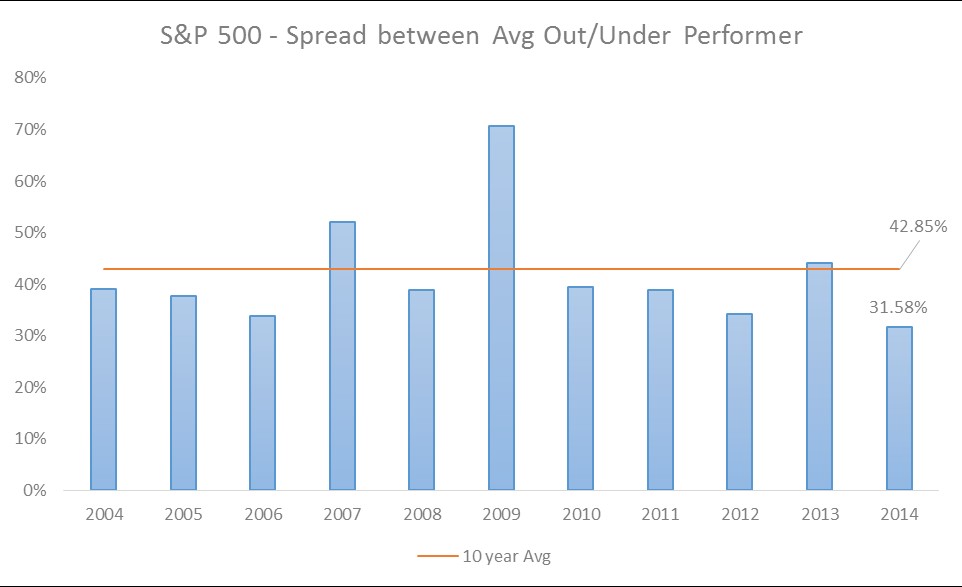2014 was the worst year for hedge fund managers, regardless of their skill, according to analytics firm Novus.
Like an expert fisherman facing an empty lake, hedge fund managers found historically low rewards for their abilities (if any) to outperform indices.
“In 2014, a portfolio manager could have been just as good at timing the market, or picking winners and losers, or sizing those positions effectively as she’d always been, but the returns from an alpha-generation standpoint won’t show it,” said Joe Peta, managing director at Novus.
 Source: Novus
Source: Novus
According to Peta, tactically shifting net exposure to a stock proved ineffective due to low volatility. Daily average realized volatility for the S&P 500 declined for three consecutive years to just above 50%—well below the 10-year average—the firm’s data showed.
A hedge fund manager’s ability to pick stocks also added little value in 2014, Novus said, as securities hugged the benchmark, resulting in a tight spread in performance.
Like volatility, the spread between the average outperformer and underperformer in the S&P 500 hit a multi-year low at just 31.6%. The 10-year average, in comparison, was 42.6%.
“The ability to pick winners and losers beforehand, the skill of relative-value pairing, which is the very basis for the theoretical value of superior risk-adjusted returns in a long/short hedge fund, has almost certainly never been worth less during the existence of virtually every hedge fund,” Peta said.
Furthermore, the ability to size positions efficiently failed to add much value in 2014, Peta said. The spread between the top and bottom half of S&P 500 outperformers were just 29.9%, according to Novus, while the difference for underperformers was even lower at 21.6%.
“Position sizing is valuable in an environment where there is wide disbursement within the winners and losers, as opposed to between the winners and losers,” Peta said.
Such market environments contributed to a five-year high of hedge funds closures last year. A total of 904 hedge funds closed in 2014, according to HFR, with funds returning an average of 5.5% while the S&P 500 gained 12%.
Most recently, hedge fund tycoon Paul Tudor Jones announced his firm Tudor Investment Corporation is closing its $300 million futures fund due to high operational costs.
Jersey-based Brevan Howard also posted its first annual loss in its flagship $24 billion macro hedge fund last year, ending an 11-year winning streak, according to the Financial Times.
Sources familiar with the company told the news organization that the fund recorded a loss of 0.8% following a steady decline in returns the past few years.
CNBC also reported that Guggenheim Partners had fired at least eight senior executives from the firm’s $600 million hedge fund unit last December. Insiders said the main fund’s mediocre performance contributed to the layoffs.

 Source: Novus
Source: Novus
Related Content: Paul Tudor Jones To Close Futures Hedge Fund, Will Hedge Funds Make a Comeback in 2015?, Hedge Funds Confound Expectations in 2014
